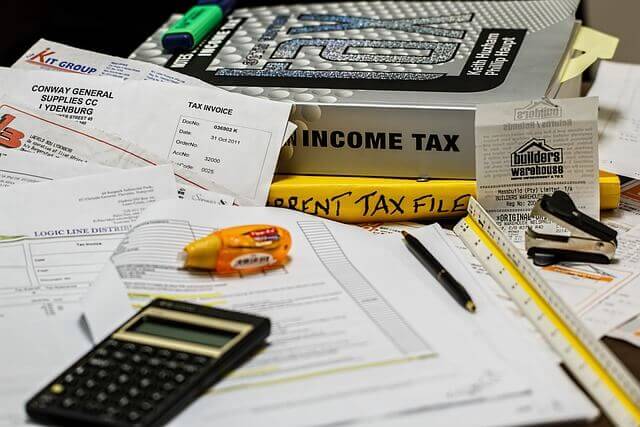If you are the owner of a trucking company, or if you are an independent owner/operator, you know that truckers pay plenty of taxes. According to Simplex Group – Trucking Tax Services, if you do not file all of your taxes on time, you will be subject to fines. You should hire a professional tax preparer who is well-versed in the trucking industry to handle your taxes. A professional accountant will stay on top of filing taxes and changes to tax laws. They will also be aware of all of the different deductions you can take.
If your company employs drivers instead of just using independent contractors, you must collect taxes from them for things like social security and income tax.
What Taxes Do I Have to Pay?
A trucking company will have to pay income taxes just like any other company. They will have to pay additional taxes based on the amount of fuel they have to purchase and the number of miles the driver travels. If you are self-employed, you will pay a tax rate of 15.3%. This includes Social Security taxes of 12.4% and Medicare taxes of 2.9%. The states that a truck passes through will also make a difference. It is helpful for trucking company owners to know all of the taxes that they will have to pay and the laws affecting truck taxes.
The International Fuel Tax Agreement
The International Fuel Tax Agreement is an agreement between America and certain Canadian provinces. It was created to make reporting the fuel that is purchased by interstate trucking companies easier. Alaska, Hawaii, and territories in Canada do not have to participate.
Before the IFTA was enacted, trucking companies had to register themselves with every state. They would report their fuel purchases to each state as well. If a company owed taxes, it would have to pay money to each individual state. If a state owed the trucking company money, it would have to send a check to the trucking company. The IFTA created local offices in each state to make things easier.
All you have to do is file a quarterly report with your local office, reporting the amount of gas purchased in each state. The IFTA distributes the tax money to the states. If you are owed money, they send you a return.
Who is Subject to the IFTA?
If you have vehicles with more than three axles and a gross weight in excess of 26,000 pounds, you will be subject to IFTA rules unless it is a personal vehicle such as a motor home or pickup truck.
State Taxes
There are certain states in which you will be required to pay taxes in addition to the IFTA just for driving on The highways in a commercial truck. Both New Mexico and Oregon have additional weight and fuel taxes. The state of California has additional taxes for driving down certain Roads. New York requires you to get a tax permit to drive on its highways.
Deductions
Fortunately, there are many things a trucking company can deduct. Tax deductions are given to businesses when they have expenses. Deductions are the reason it is so very important to hire a tax preparer who understands the trucking industry. Some compliance companies work very closely with tax preparers. A company that really knows trucking can tell you if it is better to buy or lease your trucks. There are different benefits to leasing a truck than there are to buy a truck and vice versa.
You can write off both lease payments and truck loan payments. However, You will normally be able to deduct more if you lease your vehicles. If you own trucks, you will be able to take depreciation deductions.
A tax preparer who understands trucking will also be able to give you better advice when it comes to your per diem deductions. Per diem deductions are for food and incidentals that you need when you are on the road. You can claim up to $69 a day.
Writing off Business Expenses
You will have many business expenses to write off when you own a trucking company. You can take deductions for things like fuel, accounting, office supplies, insurance, and permits.
No one likes tax time. If you hire a tax preparer who understands trucking, your taxes will be paid on time and you will get all of the deductions you are entitled to.
















